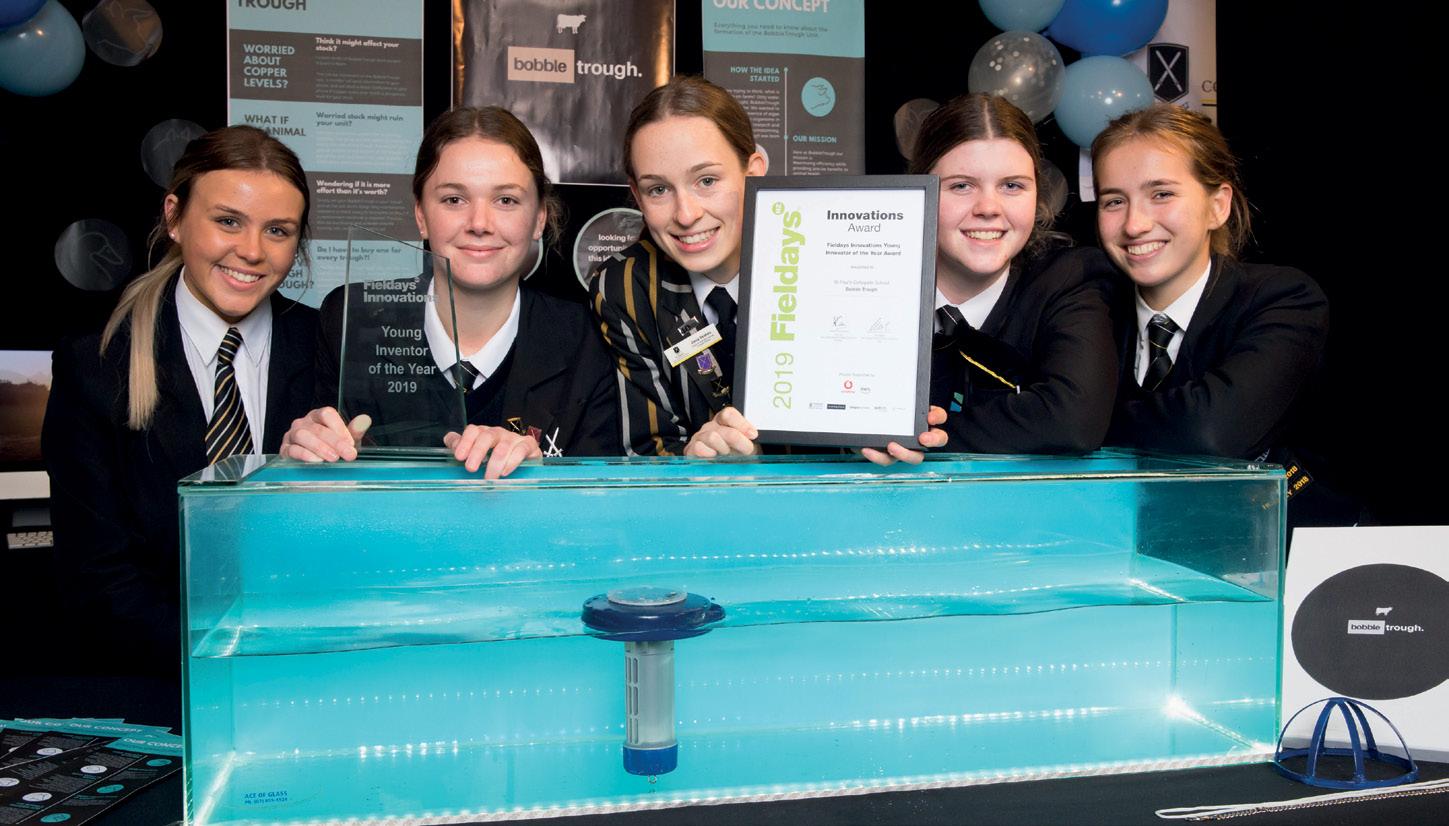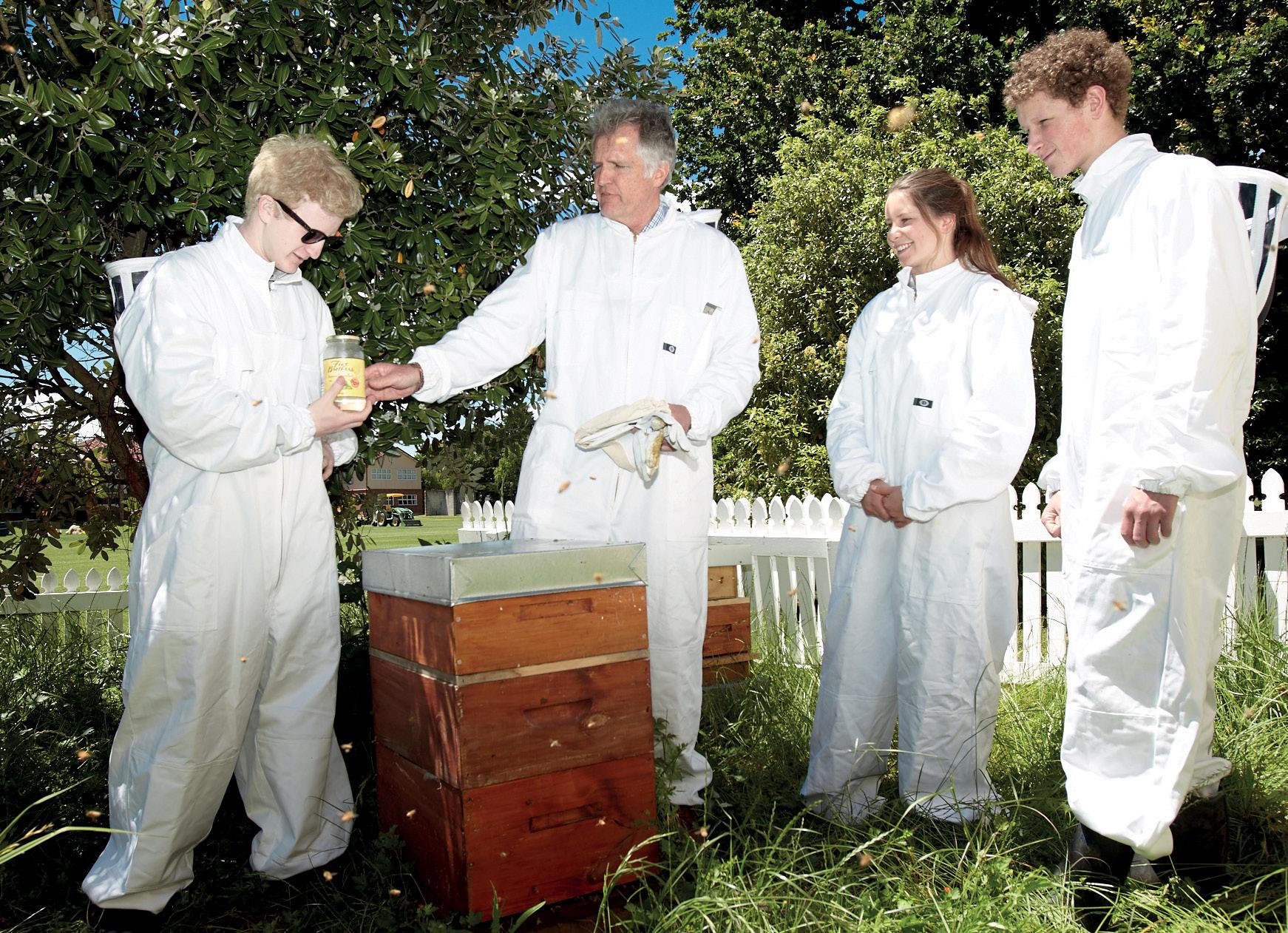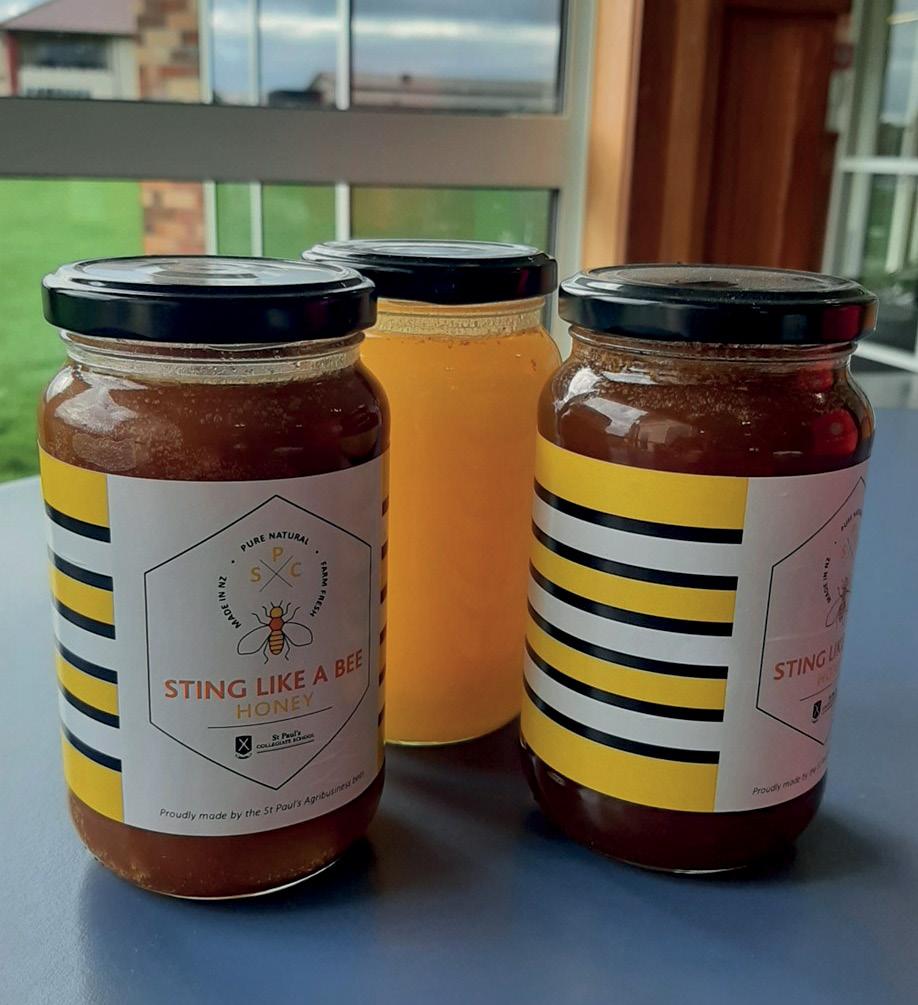
4 minute read
A decade of Agribusiness in Schools
Water quality and security an important part of the curriculum
Recently the nationwide Agribusiness in Schools programme celebrated its ten-year anniversary. It is now available in almost 120 schools and over 8000 students have completed the course.
Advertisement
Melanie Simmons has been the Agribusiness Advisor for Agribusiness in Schools since 2018, and she said it has been exciting to see the programme evolve.
“A big achievement is probably the fact that it is an established subject and being taught in 116 schools across New Zealand, but probably the biggest achievement is that the primary sector is starting to see young graduates from the programme entering the workforce and providing the sector with wellqualified and capable young people.”
The initiative first began in 2013 when the Minister for Primary Industries (Hon. Nathan Guy) set ambitious targets to double primary sector exports by 2025. An estimated 50,000 workers would be required, half of them requiring tertiary or level four qualifications.
An Agribusiness Advisory Board was established and the Government’s level of
Agribusiness In Schools Key Developments
2015
At the beginning of 2015 the centre was opened at St Paul’s Collegiate. The programme continued to be developed and eight other lead schools come on board.
2016 support was gauged. St Paul’s Collegiate in Hamilton and Gallagher committed to building the Agribusiness Centre of Excellence, with over ten other business partners coming on board. By the end of 2014, 47 students had been involved with the pilot agribusiness course.
More lead schools come on board. Teaching and learning resources are further developed.
Melanie said the curriculum is based around a focus on futureproofing, innova-
PARTICIPATING STUDENTS
PARTICIPATING SCHOOLS
2017
Stage one of the Agribusiness in Schools initiative was completed. Agribusiness achievement standards were registered in the NZQA framework, with 11 lead schools, and 308 students having trialled the delivery.
56
97
2018
The achievement standards are implemented, with 56 schools and 2,423 students enrolled.
2020
St Paul’s Collegiate School holds an annual agribusiness innovation challenge called the Crocodile Pit. Winners and runners-up get to showcase their innovations at Fieldays. Bobble Trough, an invention that uses copper ions to clean water troughs, went on to win the Fieldays 2019 Young Innovator of the Year award. (Photo: Stephen Barker)
107
2021
Numbers climb with 97 schools and 3,055 students involved. The Ministry of Education (MOE) designates agricultural and horticultural science and agribusiness school subjects of national importance.
116
2022+ tion, adding value, and sustainability. The idea is to be looking at what is influencing the industry now and what is coming – and what that means for the industry now and into the future.
The Agribusiness in Schools brand was rolled out and a teachers association was established for the subject.
Modules continue to be updated, and further staff have been employed to support the programme.
“As we know, in order for the industry to remain competitive and ahead of the game, they need innovative, solutions-focused people who have a good understanding of what New Zealand’s role is in the global market, and how we can maintain or increase our market edge. The programme helps teach that to stay ahead you need to be constantly forward-thinking. Sustainable resource use and future proofing of those resources – including water – are woven through most of the achievement standards, and because they are internally assessed schools can apply contexts to best meet their students’ needs.” online from IrrigationNZ and DairyNZ (they will send paper copies/class sets too), and LEARNZ and the Ministry for Primary Industries have some stuff too, so there was no shortage for teachers and students to access.” capability within the sector, or even the scope of the sector, then they are unlikely to opt for careers in that sector.”
The other major issue is the lack of appropriately trained teachers. Both agribusiness and agricultural and horticultural science currently have a major shortfall in teachers capable of teaching the subjects. This is not set to remedy itself anytime soon with little to no agri-trained teachers coming through the teacher training programmes.
Traditionally, there has been a lack of understanding of career pathways in the primary sector and it hasn’t been viewed as a highly-skilled qualification. One of the aims of the Agribusiness in Schools initiative is to break that perception, because if students aren’t being introduced to the scope of career capability within the sector, or even the scope of the sector, then they are unlikely to opt for careers in that sector.

Water security and quality have been a major focus in the Agricultural and Horticultural Science Environmental Issues standard at Level 3 and NZQA Agricultural and Horticultural Science Scholarship exam for the last two years. Melanie said there is currently no agribusiness scholarship exam (something they are working on) meaning agribusiness students wanting to sit scholarships tend to sit the Agricultural and Horticultural Science Scholarship exam, so there are teaching and learning programmes around those contexts.
“There are a lot of resources available
Melanie said there is an ongoing challenge the primary industry faces – perception. The public perception of the industry tends to be limited in that when they think of agribusiness they think of on-farm, on-boat, or on-orchard and often don’t understand the complexity and breadth of the primary sector and the careers within it.
“Traditionally, there has been a lack of understanding of career pathways in the primary sector and it hasn’t been viewed as a highly-skilled qualification. One of the aims of the Agribusiness in Schools initiative is to break that perception, because if students aren’t being introduced to the scope of career

“One of the beauties of the programme is its multidisciplinary, cross-curricular approach (like the industry itself, the programme incorporates aspects of science, commerce, technology, and maths) which means that teachers can adapt the programme to suit their learners’ needs and to be current and applicable to real-life. The programme is designed to be flexible, to move with what is happening in the industry, and because of the focus on futureproofing, innovation, and value add, it can’t help but evolve and stay current.”
Furthermore, the programme lends itself to real-life, experiential learning. Field trips to agribusinesses or getting guest speakers into the classroom ensure students are being exposed to what is actually happening in the primary sector, what agribusinesses are doing at the time, where innovation and disruption are affecting them, and how they intend to future proof around that, Melanie said.

